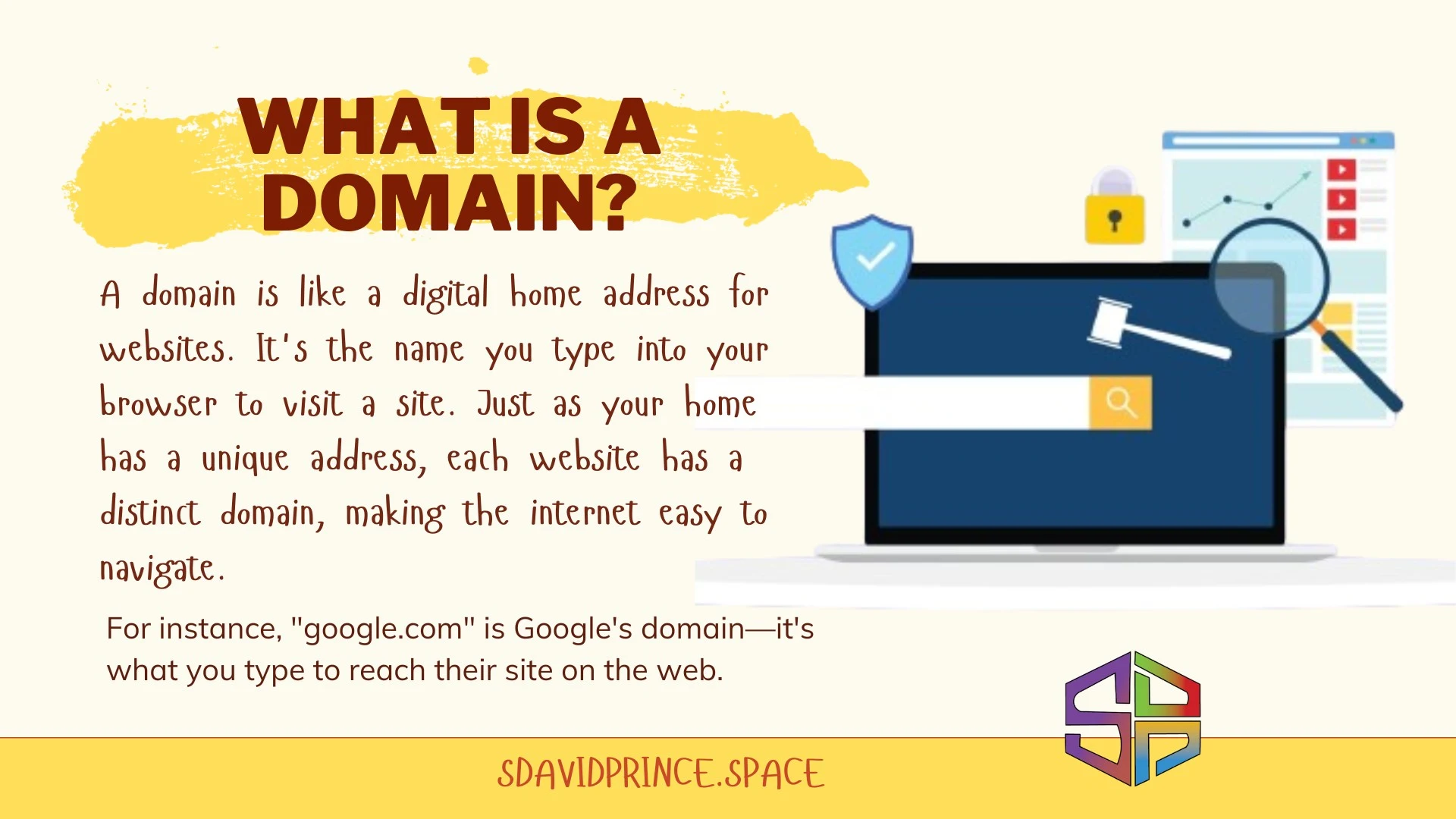What is a Domain? Explaining the Digital Address
In the vast landscape of the internet, a domain is more than just a technical term—it's the digital address that makes navigating the web comprehensible and user-friendly.
Let's delve into the essence of domain names, exploring what they are, how they serve as human-readable addresses, their structural makeup, and the paramount importance they hold in our digital era.
Defining Domain Names:
At its core, a domain name is a human-readable label assigned to an IP (Internet Protocol) address. Instead of grappling with strings of numbers and decimals, users interact with websites through these memorable and symbolic domain names.
For instance, "www.example.com" is a domain name that simplifies accessing a particular web destination.
Serving as Human-Readable Addresses:
Imagine the internet as an intricate network of computers, each identified by a unique IP address. While computers comprehend IP addresses, humans find them challenging to remember. Herein lies the brilliance of domain names—they act as a translation layer, providing an easy-to-recall alias for users.
Consider a domain as the digital version of a street address. When you type a domain into your browser, it's akin to entering an address into a GPS, guiding you to the desired online destination. This user-friendly approach has been pivotal in making the internet accessible to individuals worldwide.
The Structure of a Domain Name:
Breaking down a domain reveals its hierarchical structure. Consider the domain "blog.example.com." It consists of:
Subdomain:
"blog" in this example, serving as a specific section or branch of the main domain.
like I have blog.sdavidprince.space
Second-Level Domain:
"examplename," representing the primary identifier for the website.
In my case its "sdavidprince"
Top-Level Domain (TLD):
".com," denoting the domain's category or purpose. Common TLDs include ".com," ".org," and ".net."
For this site is ".space"
Understanding this hierarchy allows individuals and businesses to create unique, customized domain names that align with their brand or purpose.
Importance of Domain Names:
Domains play a pivotal role in shaping online identity and presence. Key aspects of their importance include:
Brand Identity:
A domain is often synonymous with a brand. Choosing a memorable and relevant domain name contributes to brand recognition and recall.
Credibility:
Well-chosen domains enhance the credibility of websites. Users are more likely to trust and engage with websites that have professional and coherent domain names.
SEO (Search Engine Optimization):
Search engines factor in domain names when ranking websites. A well-optimized domain name can positively impact a website's visibility in search engine results.
Accessibility:
Domain names facilitate easy access to websites, ensuring that users can navigate the internet effortlessly.
In conclusion, a domain name is not merely a technical aspect of the internet; it's a powerful tool that shapes our digital experiences. As the gateway to online presence, the right domain name can elevate brands, establish credibility, and simplify the way we interact with the vast online universe.



